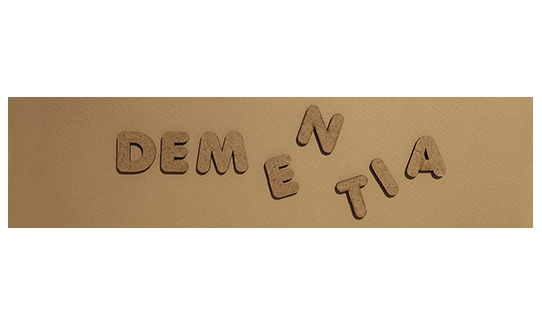



Summary
Dementia is not a specific disease but a general term for the impaired ability to remember, think or make decisions that interfere with everyday activities
Dementia is a disease that affects not only the person but loved ones as well. Typically, it’s not the patient himself or herself who recognizes memory loss, but rather the spouse or other family member. By the time it’s brought to the doctor’s attention, it has usually been going on for quite some time.
What is Dementia?
Dementia is not a specific disease but is rather a general term for the impaired ability to remember, think or make decisions that interferes with doing everyday activities. Many times people dismiss the symptoms as a normal part of aging.
Common Signs
The most common sign of dementia is short-term memory difficulty. You may also notice trouble with:
- Retaining new information, such as remembering events
- Handling complex tasks, such as balancing a checkbook
- Reasoning or inability to cope with unexpected events
- Spatial ability and orientation; getting lost in familiar places
- Language; difficulty finding the appropriate word
- Behavior—people who were typically kind might have a completely different personality
Symptoms depend on the part of the person’s brain that is affected. Typically, short-term memory loss is the first symptom, and other symptoms develop as dementia progresses.
Types of Dementia
Dementia is not a one-size-fits-all diagnosis, and there are multiple types:
- Alzheimer’s disease is the most common type, particularly in patients over 65 years old
- Vascular dementia, the second most common type, is caused by mini-strokes that might not have caused any recognizable symptoms but as they accumulate over time can cause significant disruptions in neural networks in your brain.
Other dementia conditions that also have features of Parkinson’s disease include:
- Lewy body dementia
- Progressive supranuclear palsy (PSP)
- Multiple system atrophy (MSA)
- Corticobasal degeneration (CBD)
- Normal pressure hydrocephalus (NPH)
- Creutzfeldt-Jakob disease (CJD)
Diagnosis
The first step involves a good history and physical exam. We want to rule out other things that could be causing cognitive decline, such as side effects from medications (including certain antihistamines or sedatives), infections, delirium, depression and other psychological conditions. If one of these is the culprit, the condition may be reversible.
If dementia is suspected, we will likely order dementia cognitive testing, basic lab tests (including tests for thyroid function and vitamin B12) and brain imaging. Genetic tests like apolipoprotein E epsilon 4 allele are available but are not recommended outside of clinical trials.
Treatment
Unfortunately, there are not a lot of great treatments for dementia—just things that might potentially slow down the progression of the disease:
- Redirect behaviors as best as possible in a safe and loving way.
- Cholinesterase inhibitors (donepezil, galantamine and rivastigmine) are shown to have minimal effect on cognitive decline.
Memantine is used for patients with moderate to advanced dementia with minimal effect. - Aducanumab is approved by the U.S. Food and Drug Administration for mild Alzheimer’s disease. While it appears highly effective in reducing brain amyloid levels, it is uncertain that patients benefit clinically from treatment. Because the medication has some bad side effects, its use requires close monitoring with clinical and imaging assessments. Most experts suggest against the routine use of aducanumab for patients with Alzheimer’s disease.
- Vitamin E is a reasonable supplement.
- Behavioral disturbances can be treated with selective serotonin reuptake inhibitors (SSRIs) and trazodone. Your health care provider may consider antipsychotic medications like olanzapine, quetiapine and Pimavanserin—but be mindful of potential side effects.
Avoid benzodiazepines and antihistamines, as they can worsen cognition.
If You Suspect Dementia
Because treatment can differ, it is important to see a medical professional to try to get an accurate diagnosis. Your primary care provider (specializing in family medicine or internal medicine) can be a good place to start. It is often necessary to see a neurologist for a complete workup. Geriatricians can be extremely useful in helping with the medical, behavioral and social impact of the disease.


David Pizzimenti, DO
Dr. Pizzimenti has multiple academic and committee appointments, including the Accreditation Council for Graduate Medical Education’s Resident Review Committee for Internal Medicine and The American Board of Internal Medicine’s Board of Trustees.
He completed his undergraduate studies at the University of Florida in Gainesville and his medical studies at Nova Southeastern College of Osteopathic Medicine in Fort Lauderdale, followed by his internal medicine internship and residency at Mount Sinai Medical Center in Miami Beach. A board-certified internal medicine physician, Dr. Pizzimenti was inducted to the American College of Osteopathic Internist College of Fellows in 2009.
Call 1-800-THE DESK (1-800-843-3375) or use our search to find a provider near you.

Subscribe to Our Newsletter
Like this content and want to get more? Sign up for True North, the health and wellness newsletter from North Mississippi Health Services!

Subscribe to Our Newsletter
Like this content and want to get more? Sign up for True North, the health and wellness newsletter from North Mississippi Health Services!

Nurse Link®
Not sure if you need Urgent Care or the ER? Call 1-800-882-6274 anytime to speak directly to a registered nurse and get immediate answers. Using computerized medical protocols, nurses direct callers to the most appropriate treatment. Our nurses are available 24 hours per day, seven days per week.